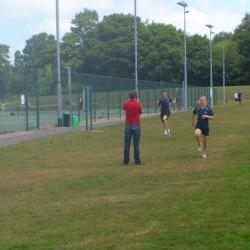Posts Tagged ‘garage’
Bridging the Gap: Coaching Theory to Practice
Bridging The Gap
Will Roberts: Senior Lecturer in Sport, Coaching and Physical Education
There is an increasing amount of research in the fields of strength and conditioning and sports coaching, and with an increasing interest in the profession of coaching there are more and more practitioners in both of these fields.
The problem
It is quite common that researchers rarely ‘do’, and practioners rarely have the time to ‘research and reflect’.
Read MoreHow to get faster: working with young athletes
 How can I get faster?
How can I get faster?
One of the questions I get asked most. There are two main parts to the answer:
Read MoreSouth West Talent project reaches National Lottery Semi Finals
One of our major clients has reached the semi finals of the National Lottery awards.
The SWT athletes and the work surrounding it has been a very rewarding, productive and successful project over the last 2 years.
This has been recognised by the National Lottery.
For more information and a chance to vote, please see here.
Read More
Athletes in action
Just some random pictures this week of Excelsior athletes in action.
Read MoreDeveloping the young athlete
One of the best projects I have been associated with is the South West Talent group. The idea is to look at developing athlete’s backgrounds, pick the ones with a varied sporting background who are later maturers, and then support them with training and measurement over a few years.
The athletes come from many different sports in the South West. Whilst some have fallen by the wayside- mainly from thinking it was another free t-shirt without realising the commitment required- the ones who have been training regularly have progressed immensely.
Read More